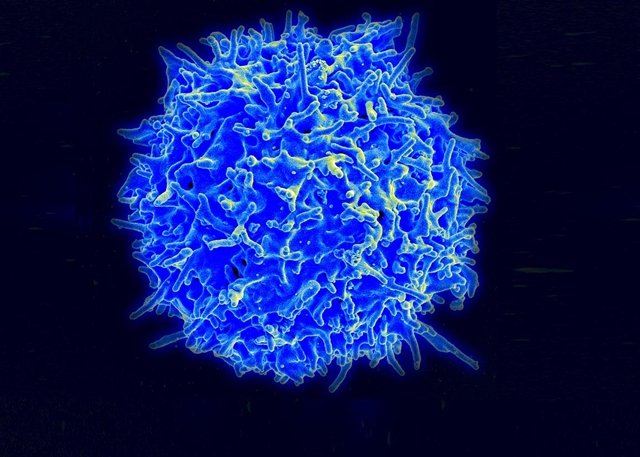6 Aug. 2020. GentiBio Inc., a new enterprise in Boston, is starting work on creating engineered T-cells from the immune system to treat autoimmune diseases. The company is licensing research from labs at Seattle Children’s Research Institute, Benaroya Research Institute also in Seattle, and MIGAL Galilee Research Institute in Kiryat Shmona, Israel, and raising $20 million in seed funds.
GentiBio plans to develop and produce engineered regulatory T-cells as therapies for autoimmune disorders. T-cells are white blood cells in the immune system stimulated by antigens to fight invading pathogens, with regulatory T-cells acting as controllers of immune reactions. In autoimmune disorders, regulatory T-cells fail to control effector T-cells that attack healthy cells and tissues in the body, instead of invading pathogens from outside. Examples of autoimmune disorders are type 1 diabetes, rheumatoid arthritis, lupus, psoriasis, Crohn’s disease, and multiple sclerosis.
In June, researchers led by immunologist David Rawlings at Seattle Children’s and a scientific co-founder of GentiBio, published a paper in the journal Science Translational Medicine describing the company’s technology. Rawlings and colleagues use gene editing techniques to alter a type of regulatory T-cells to express the protein FOXP3 that suppresses autoimmune activity. Using regulatory T-cells, or Tregs, from human blood, Rawlings and colleagues demonstrate the engineered T-cells enable the suppression of inflammatory conditions graft-versus-host disease and autoimmune encephalitis in lab cultures and animals.
Rawlings notes in a company statement released through Cision, “Tregs are rare cells within the immune system and current therapies that source Tregs cells from the blood stream can be costly and cumbersome.” He adds that his lab devised techniques to create engineered Tregs, or EngTregs, from more abundant CD4+ T-cells in the adaptive immune system, “addressing a critical manufacturing shortcoming for this novel treatment.”
The company is receiving an exclusive license to EngTreg technologies developed at Seattle Children’s, Benaroya Research Institute, and MIGAL. The company plans to design EngTregs to address specific antigens, proteins that invoke an immune response, as well as produce therapies for autoimmune disorders that restore immune tolerance and repair damaged tissues.
Jane Buckner — rheumatologist, president of Benaroya Research Institute, and co-author of the Science Translational Medicine paper — is also a scientific co-founder of GentiBio. Benaroya Research Institute, part of Virginia Mason Medical Center in Seattle, studies autoimmune diseases.
“Currently,” notes Buckner, “the majority of available treatments indiscriminately suppress the immune system, leaving the body vulnerable to infections. EngTregs endowed with antigen specific moieties can selectively restrict inflammation temporally and spatially in specific tissues where it’s beneficial.”
Adel Nada, a physician and co-founder of GentiBio, is the company’s CEO. “GentiBio is focused on addressing the technical bottlenecks that have throttled Treg therapeutics,” says Nada. He adds, “The technologies licensed from these premier research institutions are mature and well-differentiated, and will be further optimized in sponsored research collaborations with the scientific teams that discovered them to advance novel and potent therapeutics with the potential to treat and cure serious autoimmune and inflammatory diseases.”
GentiBio is raising $20 million in its seed funding round. Venture investors OrbiMed, Novartis Venture Fund, and RA Capital Management L.P led the financing.
More from Science & Enterprise:
- Engineered Immune, Stem Cells Studied for HIV Cure
- Start-Up Licenses Immunotherapies in $880M Deal
- Moderna Funding University Immunology Research
- Topical Immune Drug Reverses Skin Disease
- Genomics, A.I. Calculate Immune Health
* * *


 RSS - Posts
RSS - Posts
[…] Start-Up to Engineer T-Cells for Autoimmune Diseases […]
[…] Start-Up to Engineer T-Cells for Autoimmune Diseases […]